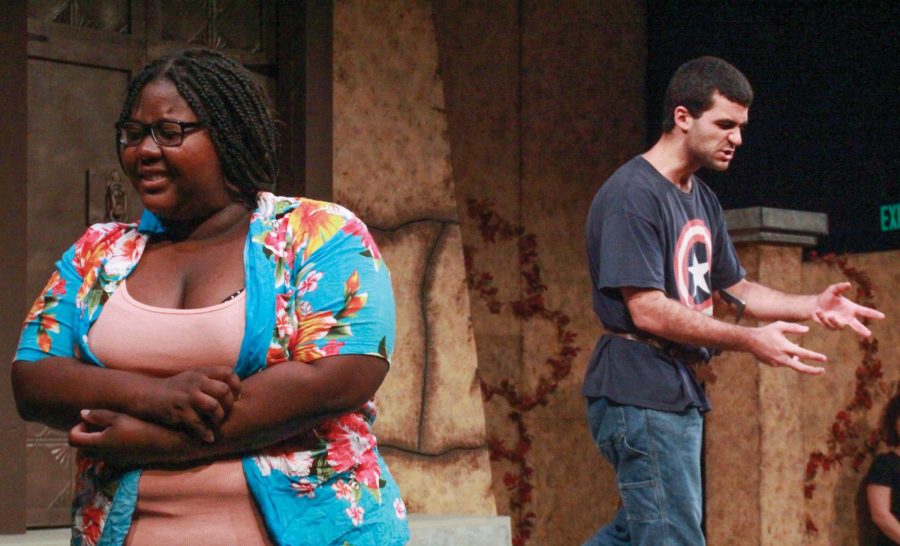UNA students, faculty to perform 1946 Greek tragedy
October 16, 2015
Beginning Oct. 16, the Department of Entertainment Industry presents the Greek tragedy “Medea.”
The play will be $10 for adults and $5 for UNA students, faculty and staff. The play is showing Oct. 16-17 and 22-24 at 7:30 p.m. in the George S. Lindsey Theatre.
The play begins after Medea, the title character, helps her lover Jason become leader of her homeland, said Charlton James, director of the play and associate professor of theatre. In the process, she kills her brother, betrays her father and flees with Jason to Corinth.
In Corinth, the two start a family, and all is well — until Jason abandons Medea for the younger, prettier princess of Corinth, a political move he hopes to use to gain power, James said. After that, Medea vows to hurt Jason in any way she can.
In this Robinson Jeffers adaptation, the language is more contemporary, but it still tells the original story of Medea, James said.
Sophomore Vicki Montgomery, who plays Medea, said she feels the audience will enjoy seeing Medea’s internal journey throughout the play.
“She changes in the end into this evil, hateful bitch,” Montgomery said.
While preparing for the role, she said her favorite part is how Medea insults everyone.
“One of the lines she says is, ‘Here it is: the lowest. The obscene dregs; the slime and the loathing; the muddy bottom of a mouthed cup,’” she said. “She’s just describing Jason. It’s beautiful.”
Anyone who studied Euripedes’ Medea, written around 400 B.C., in class will likely notice a different tone in Jeffers’ version, written in 1946, said English Professor Nicholas Mauriello.
“He adapts it to reflect his view of the world after World War II,” he said. “His view is that we’re all becoming inhuman. (The U.S.) just dropped a bomb on someone, and Jeffers is famous for saying, ‘If God is all, he must be suffering.’”
James said “Medea” is big for Florence because he does not think many people in the community have seen it live.
“It’s still one of the most highly-respected, classical plays in our cannon of dramatic literature,” he said. “It’s cool for people in the community to see a play that is that well-known and that respected live.”
Sophomore Graham Pugh said he is looking forward to seeing the play since he has studied it in a literature class.
“I think it makes me more interested in seeing it acted out,” he said. “The performance could even make me like it more just because I can see the action and the characters come to life, and I’m not just reading it.”
James said the department also tries to rotate genres and styles, and he said the last Greek plays were Antigone and Oedipus in 2008.
He is also confident in his current cast to perform such a prestigious play, he said.
“We have some really strong women actors right now in our program,” he said. “Medea is one of those coveted roles, like what Hamlet is to a male actor. Medea is a part that a lot of female actresses want on their resumes.”
Montgomery said her method to portraying Medea is to stay humble.
“I’m not approaching it as some huge role,” she said. “I’m approaching it like, ‘OK, It’s a role like any other role.’ Any role I would have accepted and I would have done the exact same that I’m doing now.”
UNA theatre majors make up the cast, except for Jeanne Baughman, who plays the nurse and is the communications department administrative assistant. Ben Coker will play opposite Montgomery as Jason.












